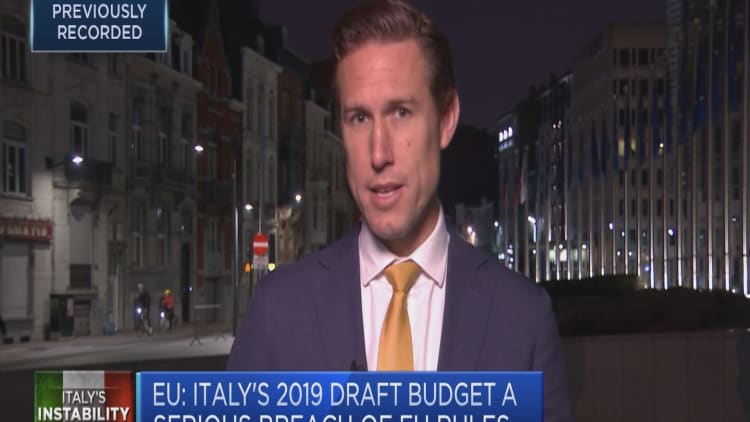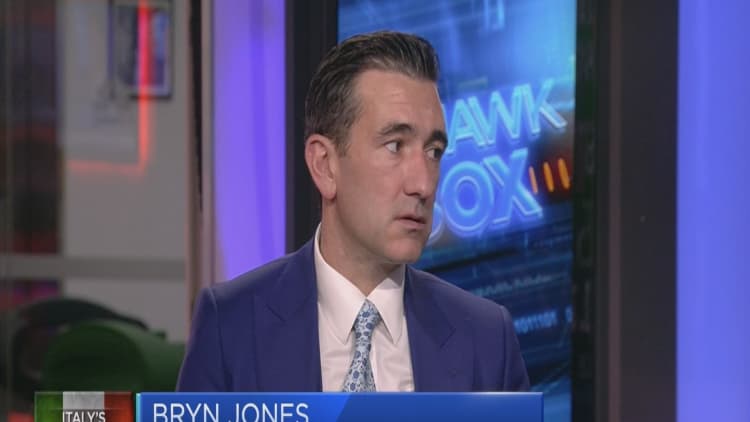
Italian sovereign debt yields hit fresh multi-year highs Friday morning, as investors grow cautious over lending to the embattled government after it unveiled new budget plans.
Ten-year and 30-year bond yields — yields have an inverse relationship to a bond's price — hit their highest levels since early 2014, according to Reuters, just hours after the European Union warned of rule breaches in Italy's draft budget.
The interest rate on the 10-year benchmark bond rose to 3.7410 percent by 9:00 a.m. London time after finishing Thursday at 3.673 percent. Shares on Milan's FTSE MIB also slid 0.9 percent in early trade after steep losses in the previous session. Italian stocks and bonds fought back in Friday afternoon trade however, after European Commissioner for Economic and Financial Affairs, Taxation and Customs, Pierre Moscovici, said he wanted to reduce tensions between Brussels and Rome.
Investors have shown concerns over Italy's 2019 budget, which was officially sent to the EU this week for analysis. The anti-establishment and partly right-wing government in Italy plans to increase public spending, sticking with campaign pledges before the general election in March this year.

There are fears that the fiscal plan will derail the reduction of the country's debt pile — which is the second largest in the euro zone, totaling 2.3 trillion euros ($2.6 trillion). Within Europe, countries are expected to not run an annual deficit greater than 3 percent of gross domestic product (GDP). However, in Italy's case its debts have led to Brussels requesting that Rome work toward balancing its books.
Italy's prime minister has defended its free-spending budget this week, after officials in Brussels criticized the plans. On Thursday, the Brussels-based institution sent a letter to the Italian finance minister, Giovanni Tria, warning him that the 2019 budget draft seemed to point to a "particularly serious non-compliance with the budgetary policy obligations laid down" in European rules. The Italian government has until Monday to reply to the commission's latest letter.
Bryn Jones, the head of fixed income at Rathbones, told CNBC's "Squawk Box Europe" Friday that he would rather wait to see what happens before taking a position on Italian debt.
"The yields are currently very high, but I wouldn't be adding to them until this story plays out a little bit. I am not that confident that we will get to a solution in the very-short term," Jones said.

Analysts at Rabobank also noted a disagreement between the two ruling parties in Italy as further weighing on sentiment.
The left-leaning Five Star Movement is reportedly questioning whether a tax amnesty plan had been altered by the right-wing Lega party after it had been signed off. Lega denies that there's been any last-minute tampering and denies there is a rift in the coalition.
"This difference of opinion has led to further questions over the potential longevity of the coalition government," the analysts said in a research note Friday.
—Reuters and CNBC's Silvia Amaro contributed to this article.


